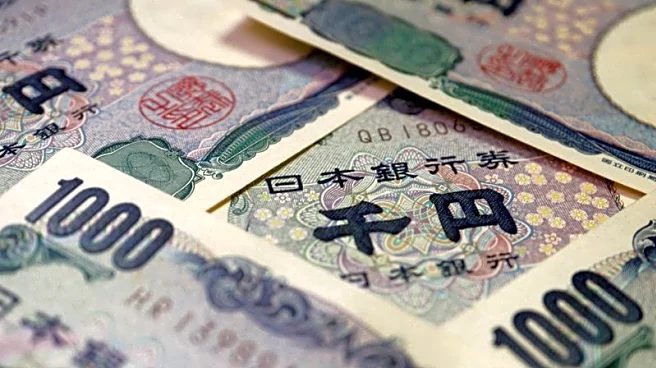What's Happening?
President Donald Trump has announced an extension of tariff relief for U.S. automakers, initially set to expire in 2027, now extended until 2030. This decision is part of a broader strategy to bolster
American manufacturing by alleviating the financial burden of import taxes on auto parts. The relief comes in the form of a 3.75% rebate on the sales price of domestically assembled vehicles, calculated from a 25% import tax on parts constituting 15% of a vehicle's sales price. The extension follows discussions with industry leaders and aims to enhance domestic production competitiveness. Additionally, Trump has imposed a 25% import tax on medium and heavy-duty trucks, effective November 1, while buses will face a 10% tariff. These measures are designed to encourage automakers to relocate production lines back to the U.S., aligning with Trump's economic policies.
Why It's Important?
The extension of tariff relief is significant for the U.S. auto industry, which is currently facing challenges such as increased production costs and consumer sticker shock. By reducing the financial impact of import taxes, the policy aims to support domestic manufacturers and stimulate local production. This move could potentially lead to job creation and economic growth within the sector. However, it also highlights the administration's reliance on tariffs as a tool for economic policy, which has been controversial. The decision may affect international trade relations, particularly with countries involved in the U.S.-Mexico-Canada Agreement, which is due for renegotiation next year. The policy's impact on consumer prices and industry competitiveness will be closely monitored.
What's Next?
The auto industry is expected to respond to these changes by adjusting production strategies to maximize the benefits of the extended tariff relief. Automakers may increase domestic assembly operations to take advantage of the rebate, potentially leading to shifts in supply chain dynamics. The upcoming renegotiation of the U.S.-Mexico-Canada Agreement could further influence trade policies and industry practices. Stakeholders, including industry leaders and policymakers, will likely engage in discussions to assess the long-term implications of these tariffs and rebates. Consumer reactions to potential price changes will also be a critical factor in determining the success of these measures.
Beyond the Headlines
The tariff relief extension raises questions about the sustainability of using tariffs as a long-term economic strategy. While it aims to protect domestic industries, it may also lead to increased costs for consumers and potential retaliatory measures from trade partners. The policy underscores the administration's focus on economic nationalism, which could have broader implications for international trade relations and global economic dynamics. The effectiveness of these measures in achieving the desired economic outcomes will be a subject of ongoing debate.











